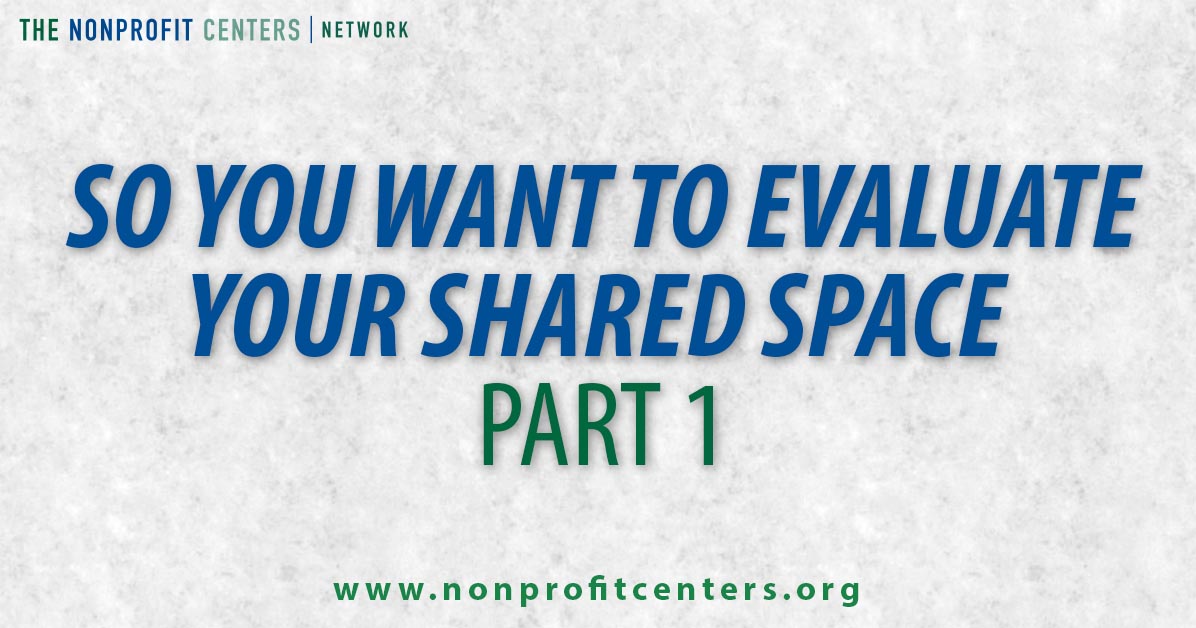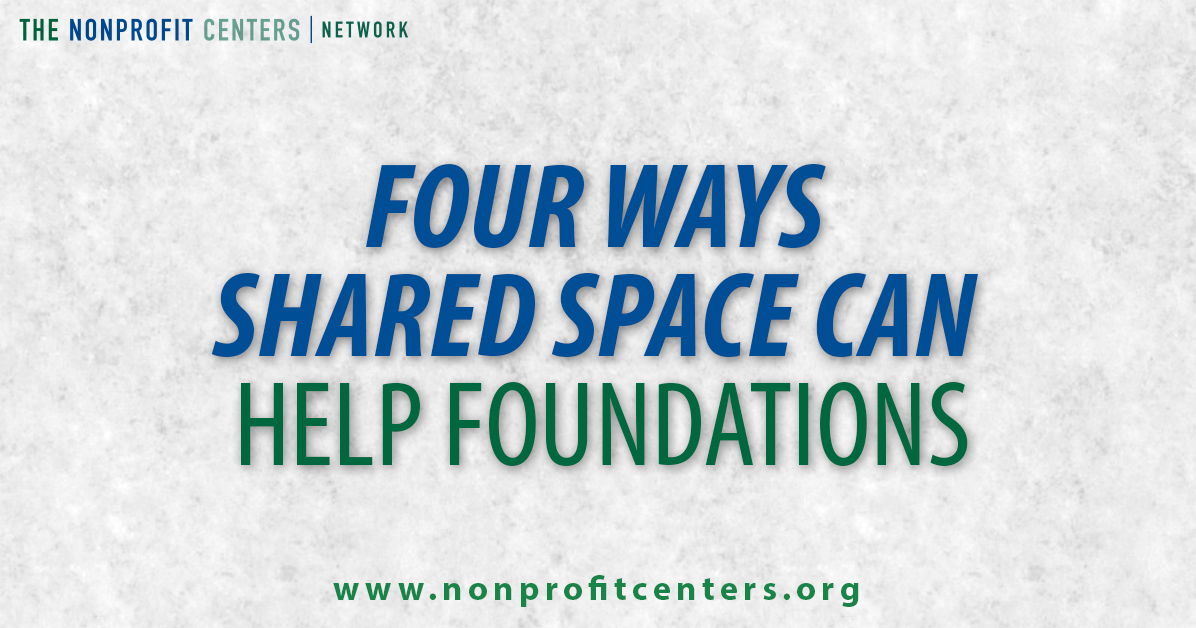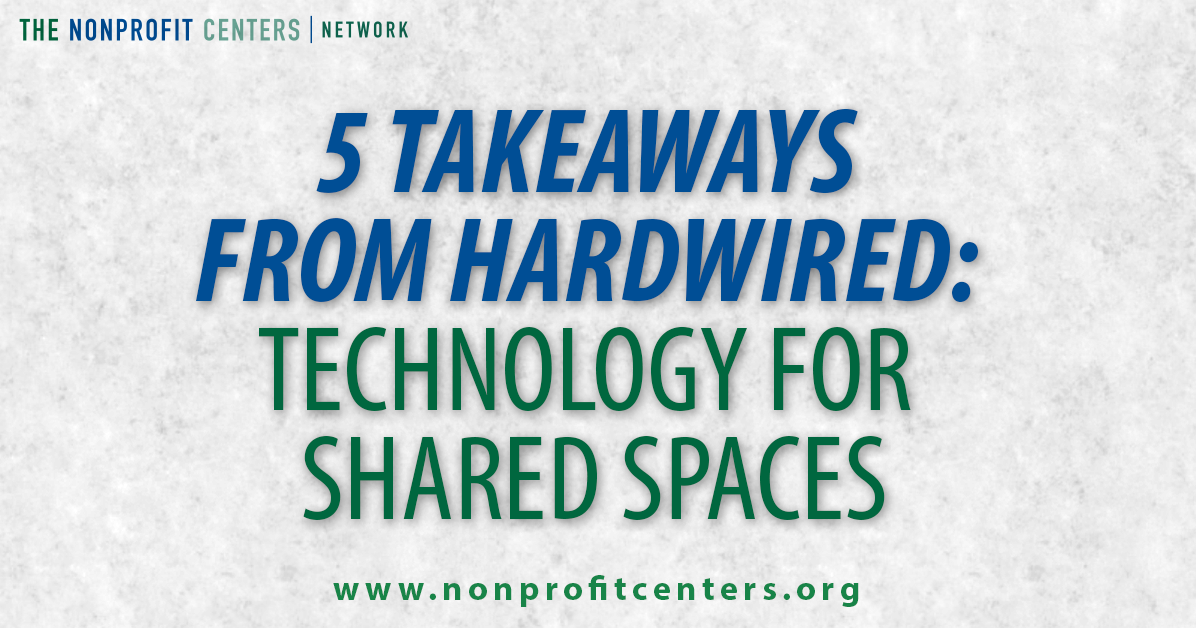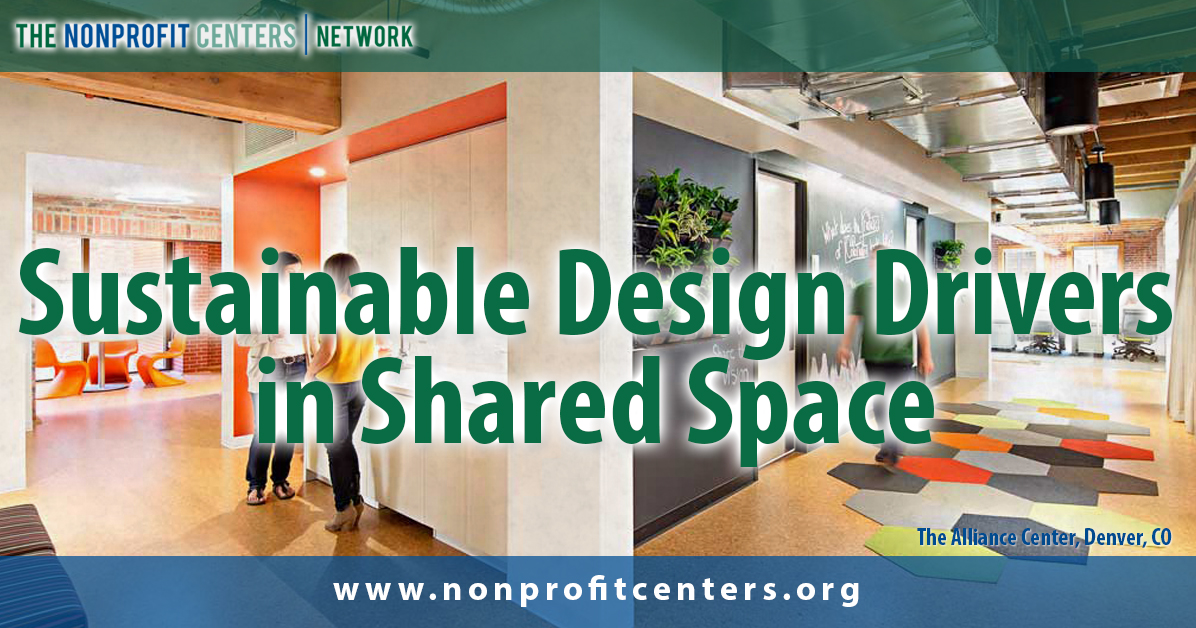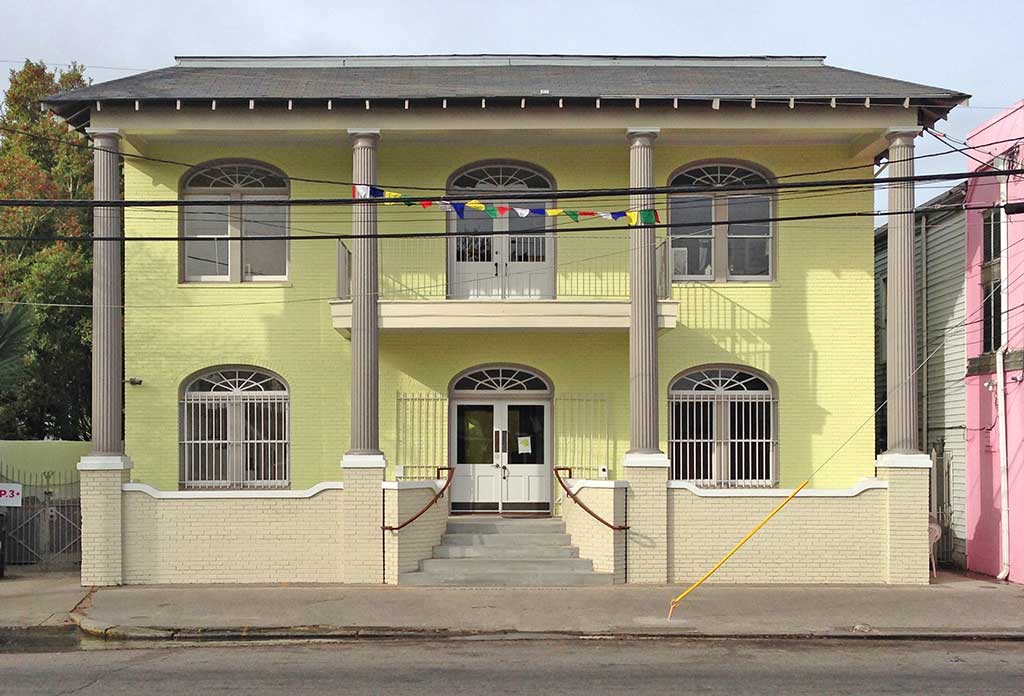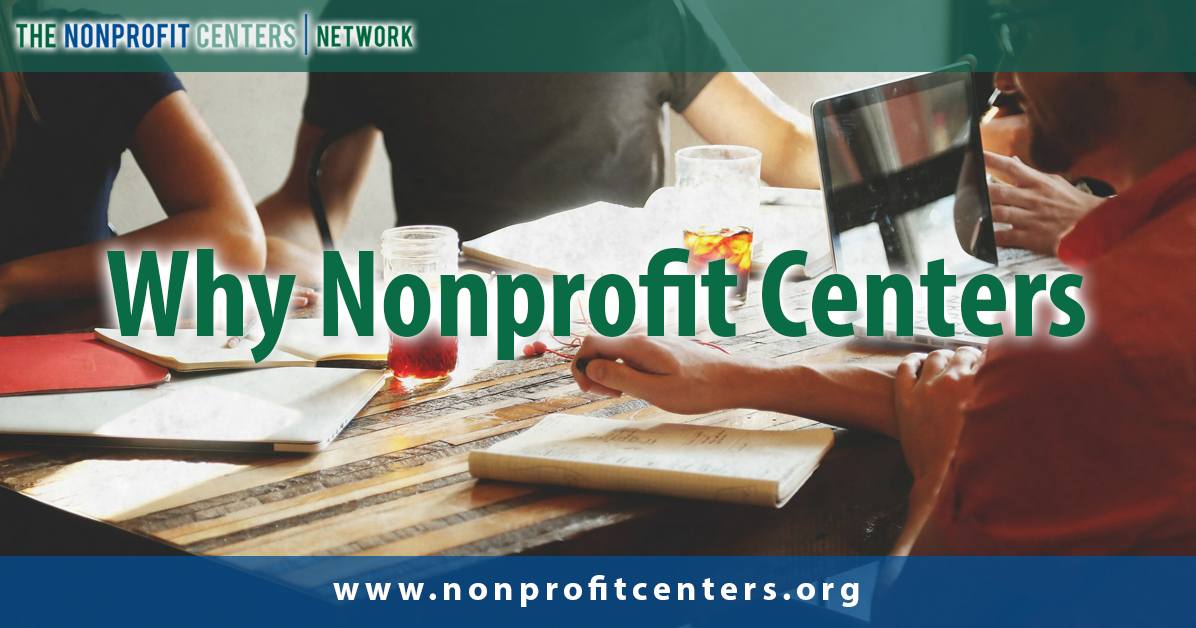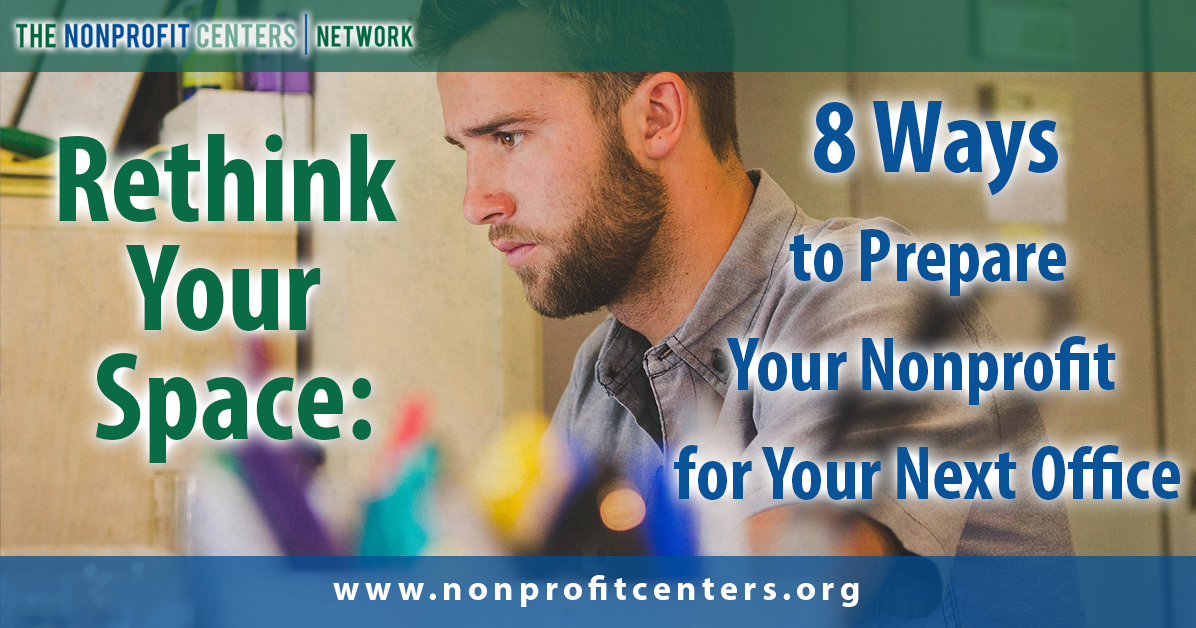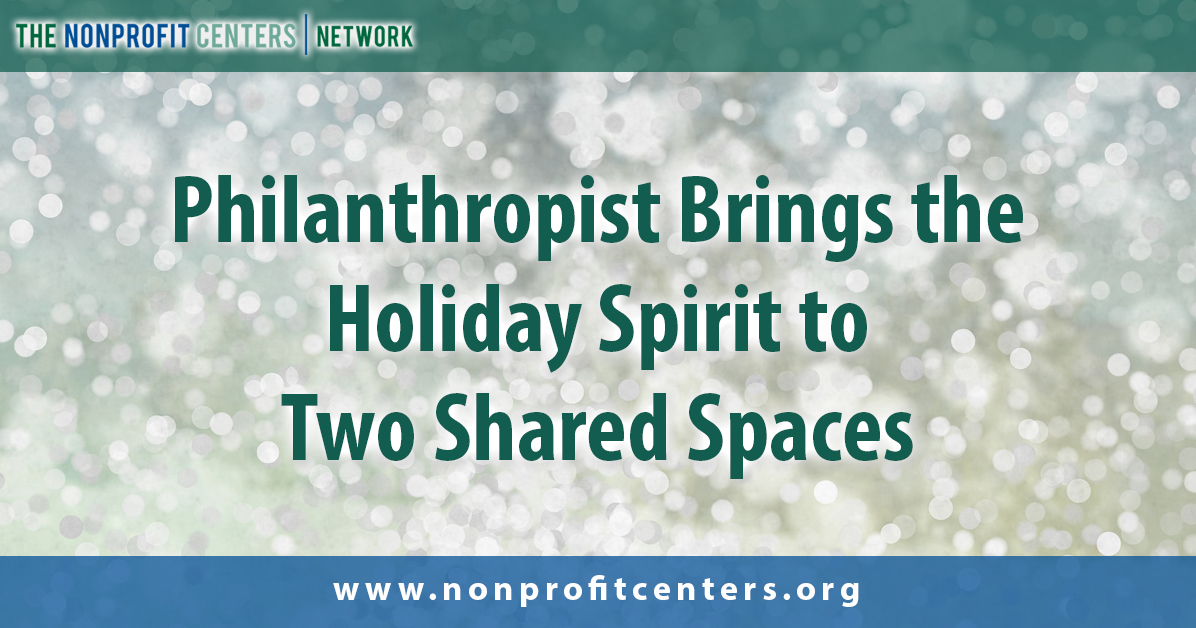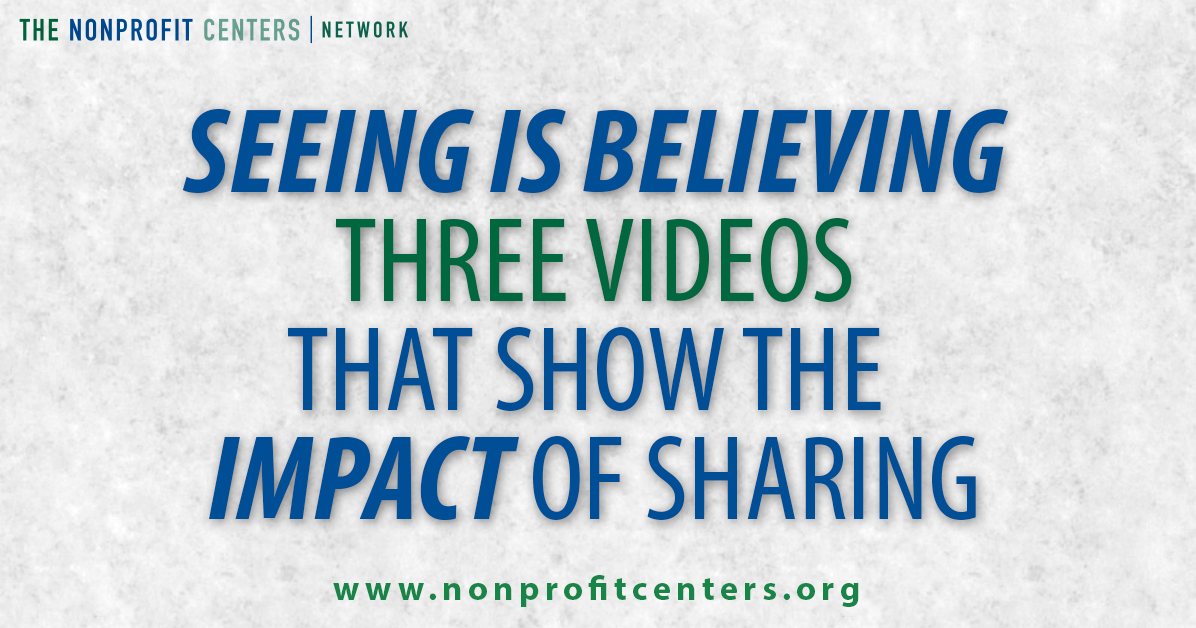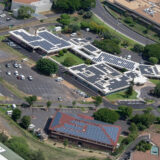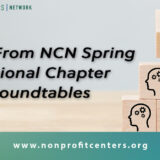NCN started 2017 by kicking off the Evaluation Project, a peer learning opportunity we created with Elena Harman and Laura Sundstrom of Vantage Evaluation. Ten centers are participating in this 9-month process to understand how to approach impact measurement in a rigorous way. Each center will be supported as they complete their own evaluation. This is the first of a series of blogs on what we are learning through this critical process of making the case for shared space. The advantages to the approach we are using are twofold: first, the centers are essentially sharing the cost of an evaluation professional who would have cost them many times more if they contracted individually; secondly, by working in parallel, the centers are “speed” learning what works in various settings since they can see what their peers are trying and apply those lessons in their center. We have a great mix of centers: large, small, new and seasoned. We have some centers who are focused on a specific theme or issue area and some that are more general in terms of the types of tenants they house. This has helped us learn more about how different types of centers approach evaluation, why they want to do it and what kinds of information they are seeking.
Nearly a quarter of all shared space projects are driven by foundations, whether it’s because they have many grantees conducting capital campaigns at the same time, they’re searching for new offices themselves, or they’re looking for a new way to invest in their community. We know that the philanthropic community is a valuable partner to shared spaces, but shared spaces have many benefits for foundations as well.
- A mission-related investment opportunity: Many foundations invest a portion of their endowment in real estate. Shared space offers the same opportunity with a deep local impact. The Jessie Ball duPont Fund structured the development of the Jessie Ball duPont Center so that its rents generate a reliable return on investment. While the building does not perform at the same rates as other portfolio assets, the foundation sees that the local social return is worth it.
- The ability to make in-kind grants: The Charles A. Frueauff Foundation in Little Rock, Arkansas, offers in-kind grants of office space for two to five years to qualifying nonprofits. This allows the foundation to leverage its own offices to have a greater impact.
- The chance to spark community redevelopment: The Melville Charitable Trust purchased the historic Lyceum building in the Frog Hollow neighborhood of Hartford, CT in 2003, an area that had seen decades of disinvestment and decline. Following a building renovation, the space became a hub of housing advocacy and community organizing, leading the Trust to make additional property investments in the neighborhood.
- The opportunity to be in-the-know: Many foundations that share space with other nonprofit agencies report a value from being at the center of a hub of community activity. Program officers can see first-hand the issues that affect their grantees and become a stronger community partners.
If you represent a foundation that operates a shared space, we want to hear from you. What are the benefits that you’ve seen to your practice as a funder? E-mail us at info@nonprofitcenters.org!
Takeaways from Hardwired: Technology for Shared Spaces Last week, we were joined by Greg Bugbee from Connecticut Center for Advanced Technology for new ways to think about how to design the technology that goes into a space. Here are five tips for maximizing your IT investment. Ensure form follows function. Who is going to be in your space and how will they use it? Your users should drive your IT infrastructure. Think not only about how they will act while in the building, but what they will be producing for others outside of your four walls. For example, if you have tenant partners that develop webinars or host virtual convenings, they’ll need more IT infrastructure than those that have traditional teams in the office at all times.
The Alliance for Sustainable Colorado, the owner and operator of the Alliance Center, undertook a four-year “transformation” project of the 41,000 square feet building, constructed in 1908. In 2010, the five-story brick building, a former warehouse, was configured in a traditional, private suite layout that had little natural light and limited space for gatherings or collaboration. The renovation sought both to “create a cost-effective, high-performing building model” as well as to identify a replicable approach that could be applied to other commercial offices and historic buildings.
Arts Estuary 1024 is a multi-tenant arts facility in a renovated historic building. The center is located at 1024 Elysian Fields Avenue in the Faubourg Marigny neighborhood of New Orleans on the edge of the St. Claude Avenue Arts District. Arts Estuary 1024 supports a collaborative environment that fosters the growth and development of individuals and organizations dedicated to the creative arts and community engagement. The facility is primarily used as administrative space for local cultural organizations but can also accommodate meetings, gatherings, rehearsals, receptions, and events.

When I lived in Toronto, I worked for an organization that made its home at the Centre for Social Innovation. The Centre had been open for just a few months, and it was great to be a participant in the burgeoning space as the tenant community gelled and management explored how it was going to best meet the needs of the center’s community. As someone who has spent much of their working life in nonprofits and studying nonprofit management, I was quickly hooked on this model of nonprofit shared space that looks to create efficiencies through shared amenities/office services and bolster effectiveness through peer learning and collaboration between tenant community members.
It’s happened. Your landlord isn’t going to give you the same deal on your windowless basement office as he’s given you for the last five years. You have twelve months to figure out where to move, and you don’t even know how to start. We talk to many Executive Directors in this position. Here’s some tips for you as you start the process.
The Lab is a co-working space in downtown Oakland designed to support visionary changemakers, artists activists, and social justice revolutionaries with the space to make their work easier and to keep them from being priced out of the San Francisco Bay Area. In addition to office space, members of the The Lab have access to a host of meeting spaces, outdoor patios, and technology offerings like videoconferencing. The space also features vibrant artwork by artists from member organization Culturestrike, including some of the groundbreaking social justice artwork of Favianna Rodriguez, our newest board member.
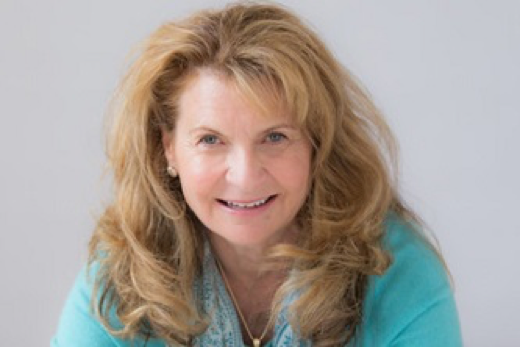
I first heard of Joanne Posner-Mayer when I was a consultant working with a fledgling shared space in Denver focused on international development in 2013. The project was in trouble. They had secured a lease for a building through the Denver Housing Authority, but it was a historic structure and the group needed to raise the funds for renovations and start-up costs. There was a gap between the projected costs and the actual costs and it wasn’t clear how the project could move forward. I remember thinking, another one bites the dust.
But I was wrong. The project succeeded because of Ms. Posner-Mayer and it is now one of the best examples of mission-driven shared space. Posner-Mayer is a Denver physical-therapist-turned-entrepreneur who invented the FitBall™, which is now ubiquitous in gyms and therapy rooms. She had deep roots with the Curtis Park neighborhood where the international development shared space center was being developed. Her father, a Polish immigrant, had a successful hardware store in that neighborhood. Ms. Posner-Mayer felt she could give back to the neighborhood that enabled her to achieve so much. I remember being so surprised at how it all came together – her contribution was truly pivotal to the center, the difference between life and death. Now in Denver we are lucky to have the Posner Center for International Development, named in honor of her family.
If that wasn’t tribute enough, a recent blog by the Rose Community Foundation reported that Ms. Posner-Mayer has been instrumental in another shared space project, the Rose Andom Center. The Andom Center is a one-stop shop for survivors of domestic violence and houses over 20 agencies in a central location. Previously, those affected by domestic violence had to travel to up to a dozen different locations to access services. Taking a client-centered approach will help stop the cycle of violence by improving rates of reporting abuse. Ms. Posner-Mayer contributed to the Rose Andom Center and is helping it establish an endowment so it can be financially sustainable for a long time to come.
I’m anxious to learn of other philanthropists who have embraced the shared service model as much as Ms. Posner-Mayer. In working with her at an NCN training event in 2015, we discussed the notion of mission-driven shared space centers as a kin to a mutual fund investment vehicle – invest in one shared space center and you’ve touched all the organizations who locate there. It’s a great way to address a pressing community issue in a holistic way. I’ve not heard of many who have invested in multiple centers, but I’d love to see it catch on.
At this time of year, it’s inspiring to think about the many ways our generosity can make a huge difference in people’s lives. The Posner Center addresses global poverty and creates opportunity for men, women and children around the world. The Andom Center is helping local Denver families find safety and peace. I can’t imagine a better example of what we all hope for in this holiday season.
If a picture is worth a thousand words, then what is a video worth? Here are a few of our favorite videos to showcase the model of sharing. Take a moment to check out three different models of shared space!
Theme Center: Posner Center for International Development
Denver, CO
Service Center: Together Center
Redmond, WA
Multi-Sector Center: Carroll Nonprofit Center
Westminster, MD




